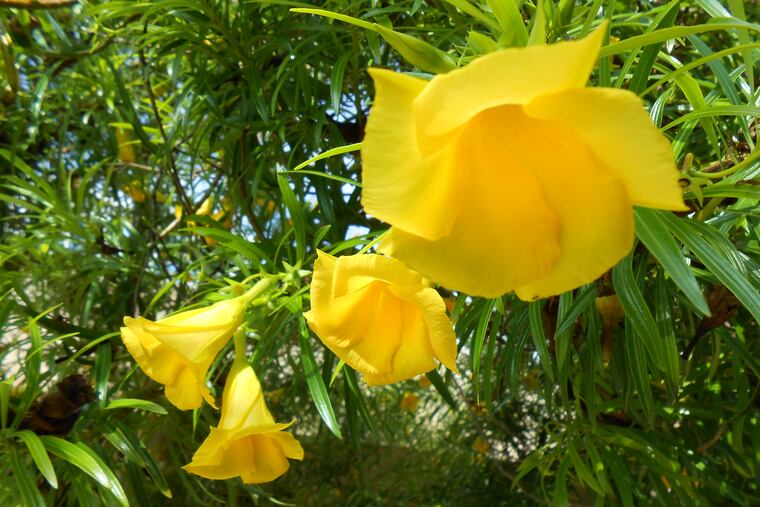A New Jersey toddler was rushed to the hospital, vomiting, after chewing on what was labeled as a weight-loss supplement
The 23-month-old girl had gotten into a bottle that was labeled as tejocote. Tests suggested it was something else.

A New Jersey toddler began vomiting after chewing on a product that was labeled as tejocote, an herbal supplement that is widely marketed online as a weight-loss aid.
Alarmed, the parents of the 23-month-old girl rushed her to the hospital, where emergency physicians discovered she also had low blood pressure and an abnormal heart rhythm.
Tests later revealed that the product likely contained the extract of a different plant that wasn’t listed on the label: yellow oleander.
» READ MORE: We want to hear your thoughts about this and other health-related articles. Please fill out our Eds and Meds survey.
Not that the child should’ve been chewing on tejocote, but yellow oleander is definitely a big cause for alarm, said Diane Calello, executive and medical director of the New Jersey Poison Control Center at Rutgers New Jersey Medical School. Yellow oleander contains a toxic substance that can disrupt the heart rhythm.
Calello and her colleagues reported the girl’s case Thursday in a weekly publication from the CDC.
The child recovered and went home from the hospital after nearly three days, the report said.
The authors also reported their results from testing a sample of 10 tejocote products that they purchased online. (The authors did not test the product from the actual bottle that the girl’s parents had purchased, but two of the 10 were from that same manufacturer.)
Not one of the 10 products actually contained tejocote, yet nine contained yellow oleander, the study authors found.
Risky supplements
Calello said the findings underscore the risks of purchasing supplements, which are more loosely regulated than drugs and don’t always contain what they claim on the label. Even if they do contain what’s listed on the label, those ingredients do not necessarily achieve the goals claimed by manufacturers, she said.
Another danger is that some supplement bottles are not child-resistant, Calello said. It is unclear whether the bottle in the New Jersey case was child-resistant, but the episode is a reminder that few packages are a match for a curious toddler.
“It only takes half a second,” she said.
The girl described in the study went to the hospital in September 2022. Upon finding she had low blood pressure and abnormal EKG readings, emergency physicians called one of Calello’s colleagues at the poison center.
Having heard of similar cases involving products that were labeled as tejocote, the poison-center official urged the hospital to test the girl for the family of substances that includes the one found in yellow oleander.
Bingo. She tested positive, so physicians immediately administered an antidote. Her blood pressure and heart rhythm returned to normal, but she suffered a relapse 12 hours later.
After a second dose of the antidote, a type of antibody, the girl recovered for good, and eventually was sent home, Calello said.
The toxic component of yellow oleander is from a family of substances called cardiac glycosides. Another member of that family is digoxin, which in controlled doses can be beneficial for patients with certain heart conditions, she said. But toddlers, no way.